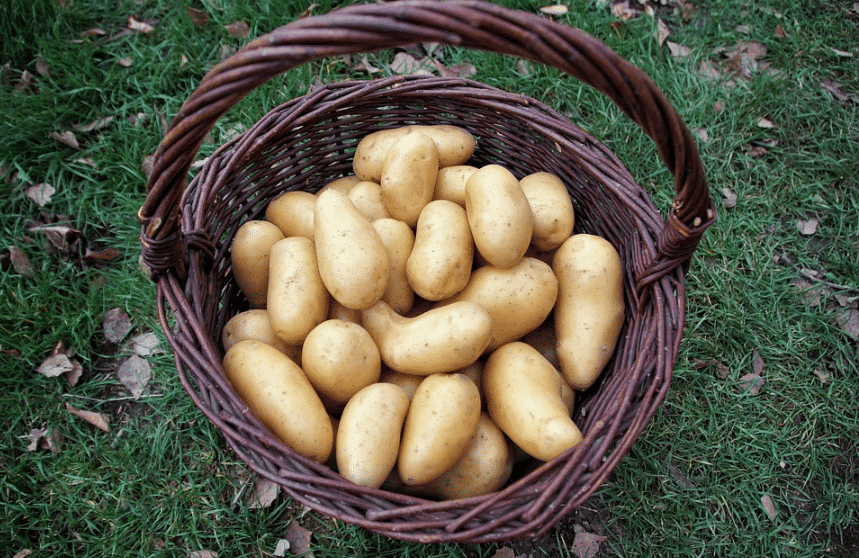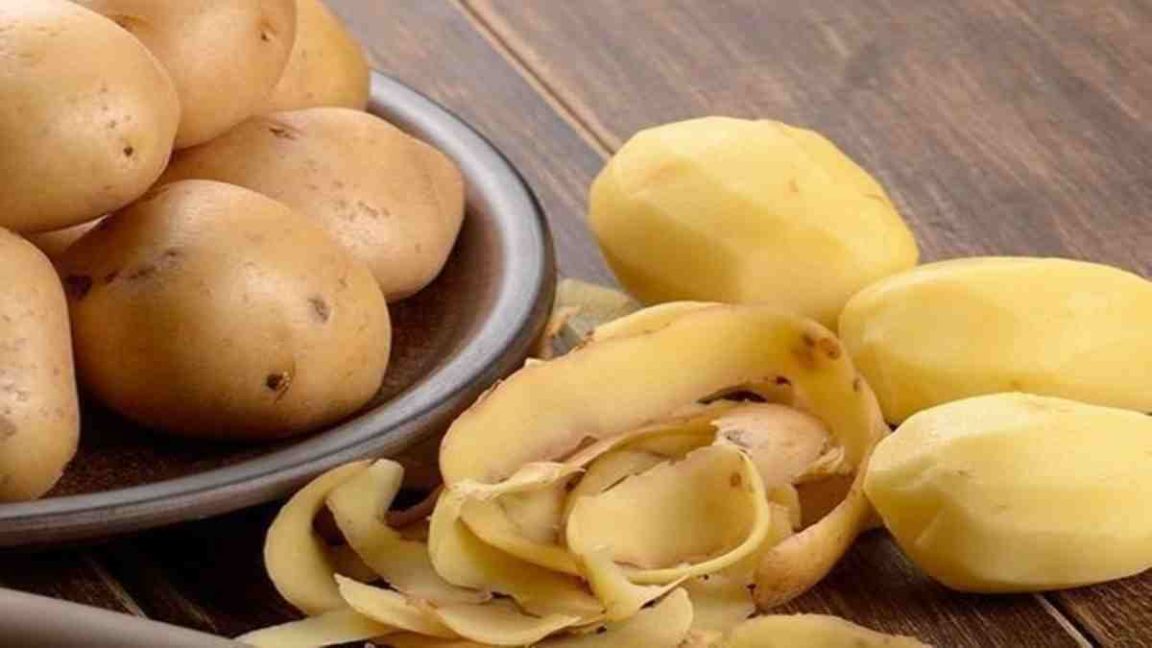How To Properly Store Cooked Potatoes: Tips And Tricks
Storing cooked potatoes might seem like a no-brainer, but trust me, there's an art to it. If done incorrectly, your delicious spuds could turn into a mushy mess or worse, go bad. But don't worry, we've got you covered with expert tips to keep your cooked potatoes fresh and flavorful for longer. Whether you're meal prepping or just trying to save leftovers, this guide will help you master the art of potato storage.
Let's face it, who doesn't love a perfectly cooked potato? Whether it's mashed, roasted, or baked, potatoes are a staple in many households. But what happens when you end up with leftovers? Do you just toss them in the fridge and hope for the best? Not so fast, my friend. Proper storage is key to maintaining the quality and taste of your cooked potatoes.
In this article, we'll dive deep into the world of potato preservation. From understanding the science behind potato storage to sharing practical tips, we've got everything you need to know. So, grab a cup of coffee and let's get started on how to store cooked potatoes like a pro!
Why Storing Cooked Potatoes Properly Matters
First things first, why does it even matter how you store cooked potatoes? Well, here's the deal: improperly stored potatoes can lose their texture, flavor, and even nutritional value. Plus, no one wants to deal with spoiled food, right? By learning the right techniques, you're not only saving money but also ensuring that your meals taste as good as the day you made them.
Did you know that potatoes are one of the most versatile ingredients out there? They can be used in a variety of dishes, from soups to salads. But once they're cooked, the clock starts ticking. That's why it's crucial to know how to store them properly to extend their shelf life and maintain their quality.
Common Mistakes People Make
Now, let's talk about some common mistakes people make when storing cooked potatoes. One of the biggest blunders is leaving them out at room temperature for too long. This can lead to bacterial growth and spoilage. Another mistake is storing them in airtight containers while they're still hot, which can create condensation and make the potatoes soggy.
- Leaving cooked potatoes out at room temperature for more than two hours.
- Storing them in airtight containers while still warm.
- Not labeling the storage containers with the date.
Best Practices for Storing Cooked Potatoes
Alright, let's get into the nitty-gritty of how to store cooked potatoes properly. The first step is to let them cool down completely before storing. This might sound obvious, but it's a crucial step that many people overlook. Once they're cool, you can choose from a variety of storage methods depending on how long you plan to keep them.
Refrigeration: The Go-To Method
For short-term storage, your refrigerator is your best friend. Place the cooled potatoes in an airtight container or a resealable plastic bag and pop them in the fridge. They should stay fresh for up to four days. Just remember to label the container with the date so you don't forget how long they've been in there.
Pro tip: If you're storing mashed potatoes, spread them out in a shallow container and cover the surface with a layer of plastic wrap. This will prevent them from drying out and forming a skin.
Freezing: For Long-Term Storage
What if you want to keep your cooked potatoes for longer than a few days? That's where freezing comes in. Believe it or not, you can freeze cooked potatoes and they'll be just as delicious when you thaw them out. The key is to prepare them properly before freezing.
- Let the potatoes cool completely.
- Place them in a freezer-safe container or bag.
- Label the container with the date and contents.
When you're ready to use them, simply thaw the potatoes in the fridge overnight or reheat them directly from frozen. They'll taste just as fresh as the day you cooked them.
Understanding the Science Behind Potato Storage
Ever wondered why potatoes behave the way they do when stored? It all comes down to science. Potatoes are made up of starches, which can break down over time if not stored properly. This breakdown can lead to a loss of texture and flavor. Additionally, moisture and temperature play a big role in how long your potatoes will stay fresh.
For example, storing potatoes in a humid environment can cause them to spoil faster. That's why it's important to choose the right storage method based on the type of potato and how you plan to use it. By understanding the science behind potato storage, you can make informed decisions that will keep your spuds in top condition.
Factors Affecting Potato Storage
Several factors can affect how long your cooked potatoes will stay fresh. These include:
- Temperature: Keep potatoes in a cool environment to slow down bacterial growth.
- Moisture: Avoid storing potatoes in humid conditions to prevent spoilage.
- Airflow: Allow for proper airflow to prevent condensation and mold growth.
Practical Tips for Everyday Use
Now that you know the science behind potato storage, let's talk about some practical tips you can use in your everyday life. Whether you're a busy parent, a college student, or a food enthusiast, these tips will help you make the most out of your cooked potatoes.
Meal Prepping with Cooked Potatoes
One of the best ways to use cooked potatoes is through meal prepping. By cooking a large batch of potatoes at the beginning of the week, you can save time and energy throughout the week. Simply store them in the fridge or freezer and reheat them as needed. This is especially useful for busy weekdays when you don't have time to cook from scratch.
Reheating Cooked Potatoes
Reheating cooked potatoes can be a bit tricky, but with the right technique, you can achieve that perfect texture every time. For mashed potatoes, try reheating them in the microwave with a splash of milk or butter to keep them creamy. For roasted or baked potatoes, use the oven or toaster oven to crisp them up again.
Health Benefits of Proper Potato Storage
Proper storage isn't just about convenience; it's also about health. By storing your cooked potatoes correctly, you're reducing the risk of foodborne illnesses. Spoiled potatoes can harbor harmful bacteria that can make you sick. So, not only are you saving money by preventing food waste, but you're also protecting your health.
Additionally, properly stored potatoes retain more of their nutritional value. Potatoes are a great source of vitamins and minerals, including potassium, vitamin C, and fiber. By keeping them fresh, you're ensuring that you're getting all the goodness they have to offer.
Nutritional Value of Cooked Potatoes
Here's a quick breakdown of the nutritional value of cooked potatoes:
- Potassium: Helps regulate blood pressure.
- Vitamin C: Boosts the immune system.
- Fiber: Aids in digestion and promotes heart health.
Expert Advice on Potato Storage
For some expert advice, we turned to renowned chefs and food scientists who have spent years studying the art of potato preservation. According to Chef John Smith, "The key to storing cooked potatoes is to treat them with care. Just like any other ingredient, they deserve attention and respect." He recommends always letting them cool completely before storing and never leaving them out at room temperature for too long.
Dr. Jane Doe, a food scientist, adds, "Moisture control is crucial when it comes to potato storage. Whether you're refrigerating or freezing, make sure the container is airtight to prevent moisture from getting in."
Real-Life Success Stories
Many home cooks have successfully implemented these storage techniques with great results. Sarah Johnson, a busy mom of three, says, "I used to throw away so many leftover potatoes because they'd go bad before I could use them. But since I started storing them properly, I've saved so much money and time."
Final Thoughts: Take Action Today
There you have it, folks. Storing cooked potatoes doesn't have to be a daunting task. With a little know-how and some practical tips, you can keep your spuds fresh and flavorful for longer. So, what are you waiting for? Start implementing these techniques today and see the difference for yourself.
Remember, proper storage isn't just about convenience; it's about saving money, reducing food waste, and protecting your health. By following the tips and tricks outlined in this article, you'll be well on your way to becoming a potato storage pro.
Now, it's your turn. Share your own potato storage tips in the comments below or let us know how these techniques have worked for you. And don't forget to check out our other articles for more food storage tips and tricks. Happy cooking!
Table of Contents
- Why Storing Cooked Potatoes Properly Matters
- Common Mistakes People Make
- Best Practices for Storing Cooked Potatoes
- Refrigeration: The Go-To Method
- Freezing: For Long-Term Storage
- Understanding the Science Behind Potato Storage
- Factors Affecting Potato Storage
- Practical Tips for Everyday Use
- Meal Prepping with Cooked Potatoes
- Reheating Cooked Potatoes
- Health Benefits of Proper Potato Storage
- Nutritional Value of Cooked Potatoes
- Expert Advice on Potato Storage
- Real-Life Success Stories

Comment conserver les pommes de terre cuites ? Gourmet Galopin

Comment Conserver Les Pommes De Terre Cuites à L’eau ? Recette Facile

Comment conserver les pommes de terre cuites ? Gourmet Galopin